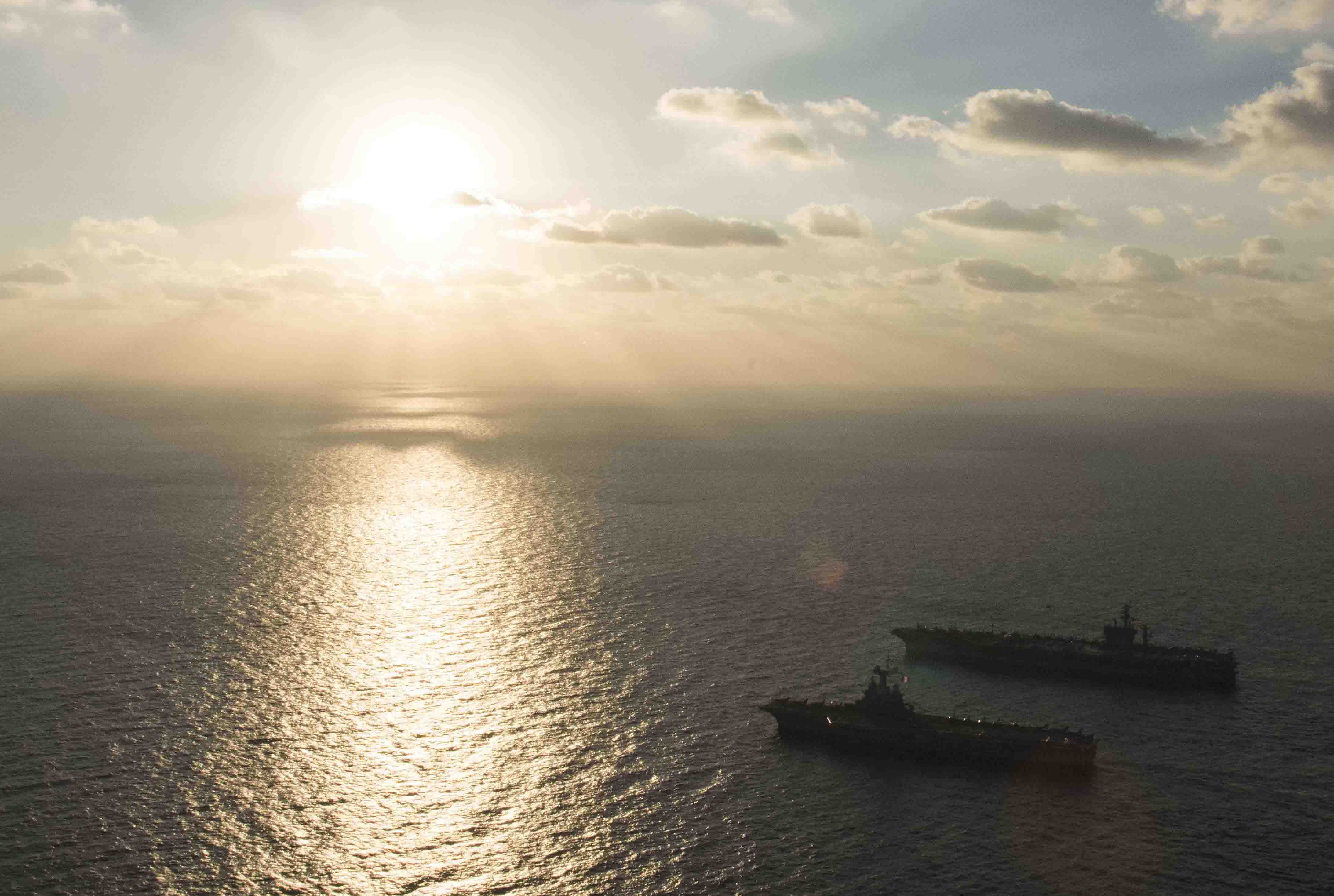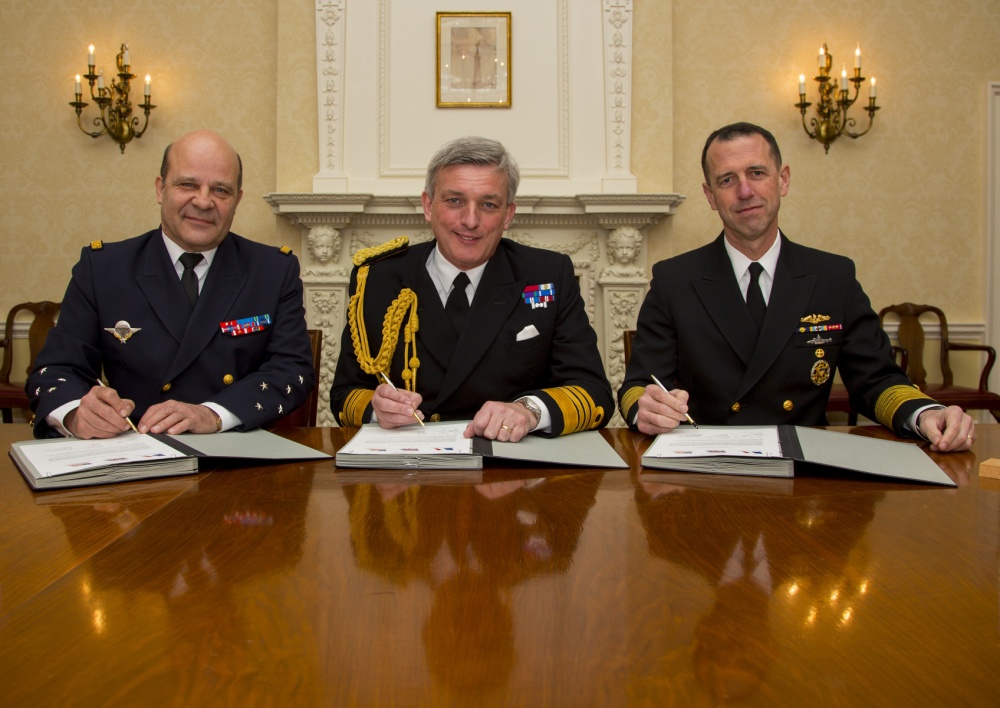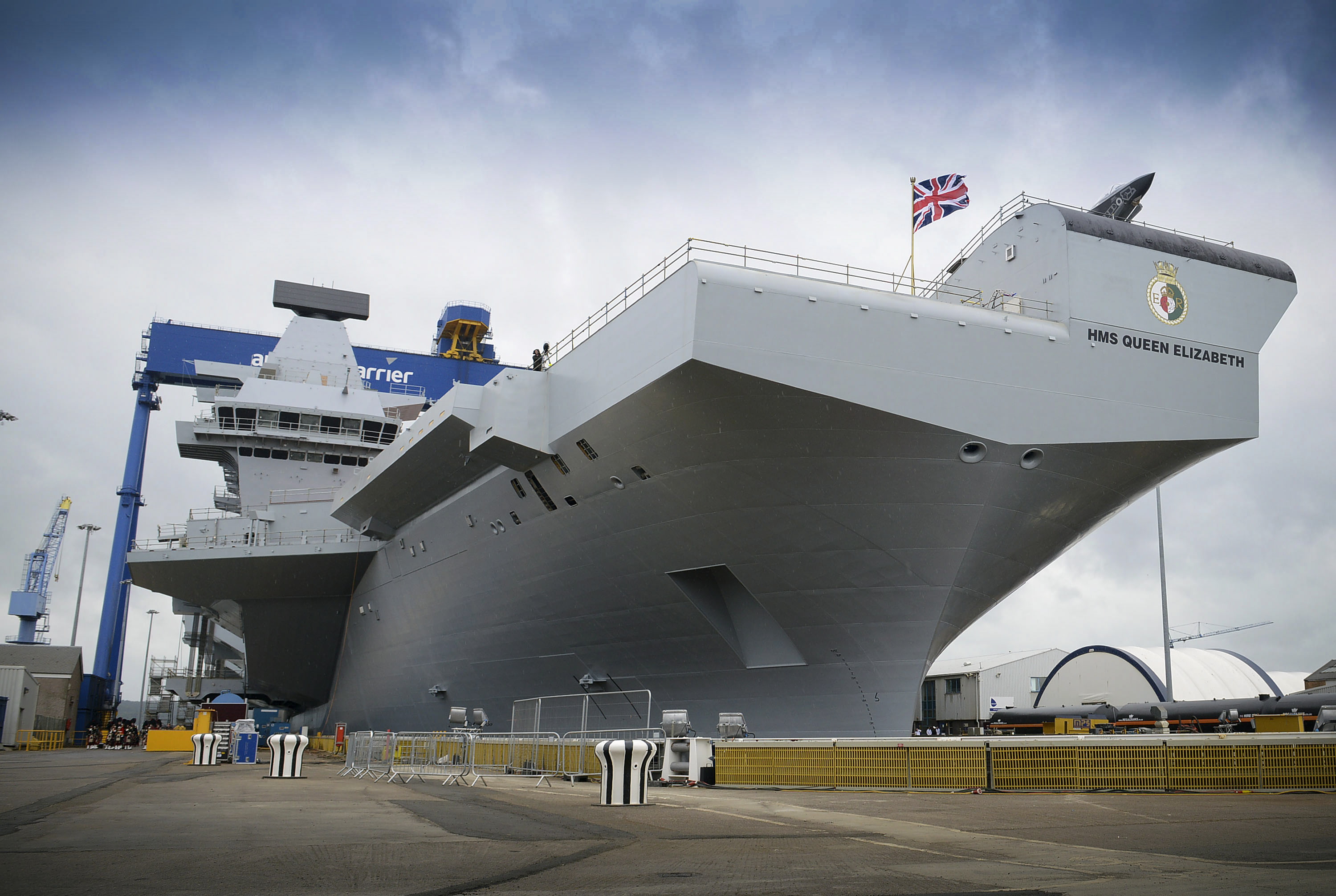
Naval leaders from the U.K., France and the U.S. have signed a trilateral cooperation agreement that will allow the three navies to work more closely together – especially in the realms of submarine warfare and carrier operations, a Navy official told USNI News on Monday.
The agreement – signed in London on Monday – marks the start of the three navies working together as the worldwide maritime security has grown more complex in the last several years, read the text of the agreement.
“Our navies share the same global reach and full-range capability from nuclear submarines to power projection. We believe that freedom of navigation and a rules-based international order are fundamental to peace and prosperity. We also share many national security challenges, including the threats posed by violent extremism and the increasing competition from conventional state actors,” the one-page agreement reads.
“More than ever, these threats manifest in the maritime domain. Given these common values, capabilities, and challenges it makes sense for our navies to strengthen our cooperation.”

While the details included in the one-page public agreement are thin, the bulk of the effort will be put toward developing a coordinated strategic picture, aircraft carrier cooperation and anti-submarine warfare operations, the official said.
“It’s first time the three navies have met for a trilateral meeting, discussed maritime instability and friction created by increased competition, regional and international cooperation on [anti-submarine warfare], and opportunities to work closer on future aircraft carrier operations,” the official said.
Both the U.S. and France have deployed carrier assets in the fight against the Islamic State in Iraq and Syria. The U.S. has conducted regular strikes on ISIS units from the Eastern Mediterranean and the Persian Gulf.
“It was an opportunity for the three high-end navies to identify areas where they can work together and improve,” the official said.
The French Navy has sent its nuclear carrier Charles de Gaulle (R91) to the Persian Gulf in support of the anti-ISIS coalition. The Royal Navy has sent several surface ships in support of the French and U.S. navies.

Additionally, the U.K. and France have agreed to cooperate in carrier operations until the first of two Royal Navy carriers enter the U.K. fleet. The first, Queen Elizabeth (R08) is set to commission later this year, and the Prince of Wales (R09) carrier is set to join the fleet in 2019.
The three countries are also concerned with increased submarine activity from the Russian Navy, primarily in the North Atlantic.
As part of the agreement, the navies have set in motion a timetable of cooperative actions and milestones.
“These types of agreements are important for ensuring that western navies and NATO nations will be able to maintain their warfighting and technological edge into the future. Enhancing collaboration between trusted allies will permit better information-sharing and help bring about advances in technology, capabilities, and interoperability for each of the countries’ armed forces,” Eric Wertheim, naval analyst and author of U.S. Naval Institute’s Combat Fleets of the World.
“When done correctly, collaboration helps bring the experience, technology advances and overall strengths of each nation to the forefront while hopefully minimizing weakness.”





